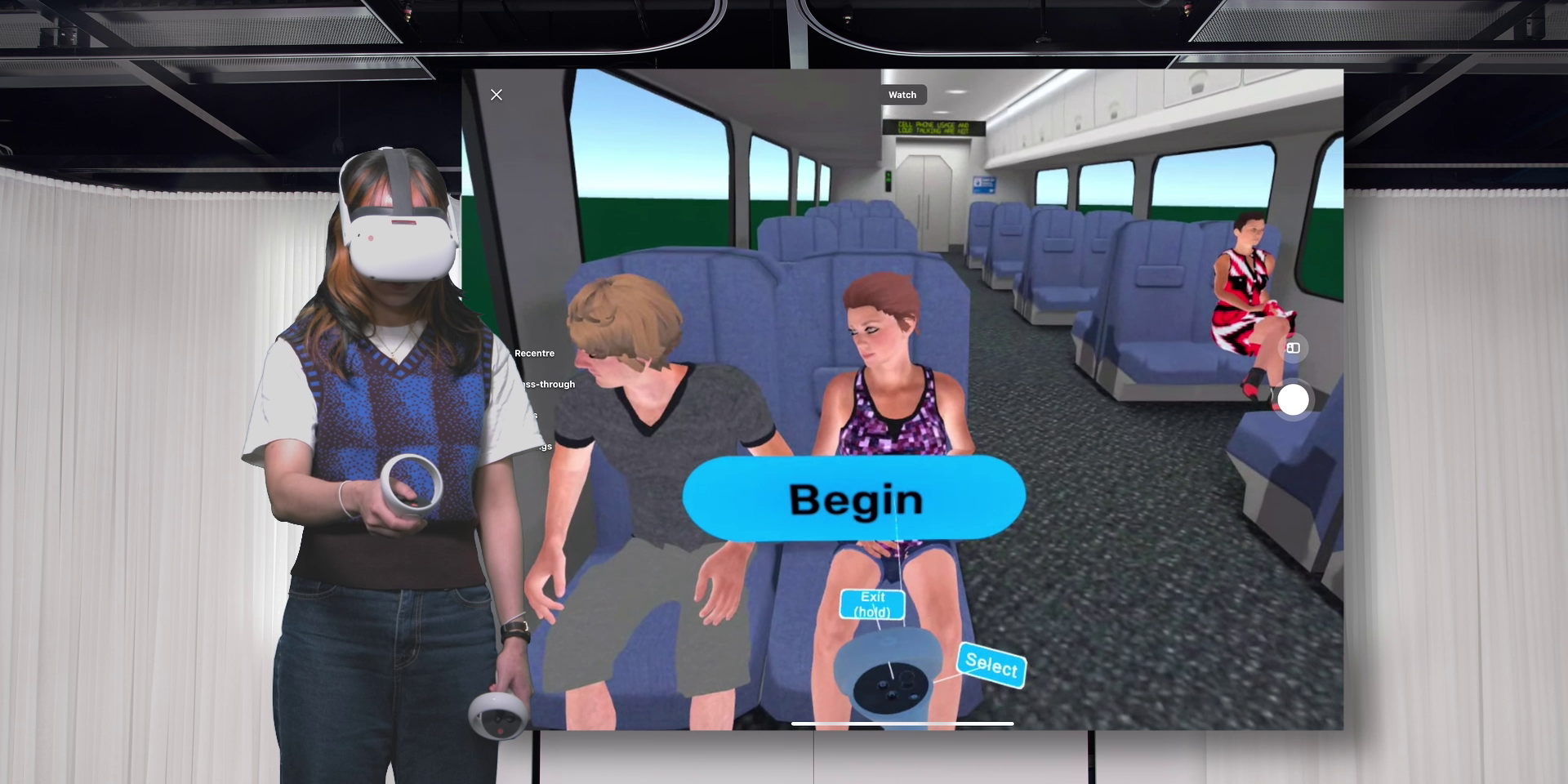
The development of a new virtual reality (VR) program to support young people with depression and anxiety is one step closer thanks to a $250,000 grant from Telstra.
The funding will allow researchers to begin clinical trials of Orygen Digital’s MIND program – a VR intervention that gives young people the tools they need in daily life to manage difficult thoughts and emotions.
The grant is one of 12 technology projects to share in the Telstra Foundation’s $2.25m investment in accelerating the social impact sector’s use of digital technologies to improve the lives of young people.
Orygen Digital Research Fellow, Dr Imogen Bell, said the Telstra Foundation Young & Connected Grant is going to take MIND from an early prototype and turn it into a treatment that's ready to put into the hands of young people.
“VR is an easy and accessible tool for young people to use. They put on a headset and the experience guides them through therapeutic skills and strategies for managing difficult thoughts and emotions. These skills and strategies are delivered in a highly immersive, real world virtual environment in a way that's fun, interesting, and engaging.
“We've met with young people and clinicians to try and understand from their perspective how MIND might be able to help. And some of the feedback we got was that MIND really has a potential to help them in their everyday clinical practice and also young people in their everyday lives, Dr Bell said.
MIND youth advisor, Lachlan Kearney, worked with the team during the development phase and said he enjoyed being a part of the consultations, contributing his perspective on mental health, ruminating thoughts and how a VR application could interact in treatment.
“Ensuring that the design and the language use and everything was very down to earth and relatable to people of my age and actually making it feel like it's something that I can sort of connect with and actually use as a mental health treatment,” he said.
Lachlan sees VR as a powerful way to transport young people out of a clinician’s room and safely into realistic environments and stressful situations to learn skills.
“Here in this situation where you actually are physically putting the thought in front of you, you can pick it up, you can throw it, you can catch it, you can, you know, pop it, you can throw it at someone else. You know, it really cements that idea of it being a separate thing and not being directly a part of you that I think you can't really do outside of VR,” Lachlan said.
Telstra CEO, Vicki Brady, said young people and technology have become inseparable companions.
“While much needed efforts to understand and mitigate risks are taking place, less attention is being paid to exploring and scaling the benefits that digital technology can provide young people – particularly in the areas of wellbeing and education.”
MIND developer, Yang Liu, said rapid technology and software tools improvements are making it more viable to explore VR’s use in mental health treatment.
“The changes that allow us to build applications like this is the more sophisticated, more polished VR headset, the hardware and the development of the tools. Many years ago, to make an application like this, you probably needed 20 people or more, which made it financially impossible.
“Nowadays you don't need to make these tools. Everything is readily usable. You can focus on the real difference, the unique aspects of your own application, which is very important,” he said.
“Our partners, including the Telstra Foundation, enable us to take our ideas and turn them into a reality, Dr Bell said.
”Without their critical support and their mentorship and guidance over the years, we wouldn't be able to have the impact that we have had on the mental well-being of young people.”
Watch this video to learn more about MIND.